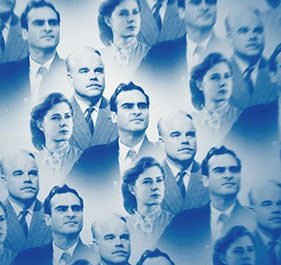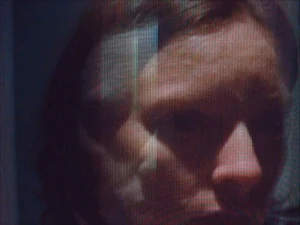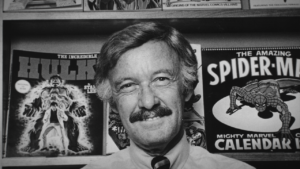Paul Thomas Anderson’s Cult of Personality
The critics simply have too much invested in the still young director to acknowledge that "The Master" has to rank somewhere between a disappointment and a disaster.
Certain movies cannot be reviewed indifferently. The critics simply have too much invested in their directors to acknowledge that, past performances to the contrary nothwithstanding, their latest effort has to rank somewhere between a disappointment and a disaster. Such is the case with Paul Thomas Anderson’s “The Master.” His previous films, which include “Boogie Nights,” “Magnolia” and the terrific “There Will Be Blood,” gave reason to hope that Anderson, still in his early 40s, was the major young talent that American movies have been yearning for (seemingly for decades). There is no reason to abandon that hope now. But the fact remains that “The Master” is an inert film, and that the chief pleasure it affords is watching it make the reviewers squirm.
They say all the right, respectful things about it — at some level they are greeting it as a masterwork and there are plenty of pull quotes in their prose — but there is something dutiful in their work, too. Their hearts aren’t really in the job, and one sometimes gets the feeling that may be true of Anderson’s as well — that his perfectly all right, but not highly original, idea dies as he struggles with it.
He presents us with an angry, hard-drinking soldier named Freddie Quell (Joaquin Phoenix) drifting around in the aftermath of World War II, looking for a cause or a character he can attach himself to, give some sort of meaning to his life. What he finds is a fellow named Lancaster Dodd (Philip Seymour Hoffman), an affable evangelist, who is said to be somewhat based on Scientology founder L. Ron Hubbard. Dodd is in the process of founding something he calls The Cause and Quell signs on with him as muscle, drinking buddy and general factotum. Many years are spent together in genteel wrangling before Quell finally frees himself of this boring attachment. You don’t get the impression that The Cause is ever going to achieve the power and mystery of Scientology. It remains pretty much a mom and pop operation. And Hoffman, in what seems to me a radically miscalculated performance, is dull as last month’s holy water.
There has to be danger in evangelism, a threat to established religious and even the social order. There’s not a particularly rich movie tradition in “hot spieling,” as it was called in Frank Capra’s 1931 film “The Miracle Woman” or in Richard Brooks’ “Elmer Gantry” of 1960, but those movies had danger in them, a sense that at any moment things could go radically awry.
I know that Anderson has other matters on his mind, but the good nature of Hoffman’s performance, its sheer blandness, robs this film of dramatic intensity, of supense. Who wants an evangelist who is from time to time a song and dance man and a jokester? There’s no menace to the man and, for that matter, none to Phoenix’s rants. They are ships passing in the night. Or maybe acting –boisterously on the one hand, recessively on the other — in two different movies.
We want — well, all right, I want — this movie to snarl at us from the street corners, to be in conflict with society as well as with its own intentions. Are these people really serious? Or are they just another cult, doomed, as most of them are, to irrelevance? In any case, “The Master” is a missed opportunity. Evangelism is still with us, of course, but it has taken new forms these days and in the antique manner it is presented here, it has no alarm, no real bite. Honestly, we want the kind of grand scale star acting that Barbara Stanwyck and Burt Lancaster brought to those lively, edgy movies of the past.
On the one hand solemn, on the other frenzied, this picture never finds a true line to follow. And one leaves it thinking that perhaps we should not bestow auteur status on directors prematurely. For God’s sake, this is only Anderson’s sixth movie, in what is a very promising career. He does not need the burden of perfection imposed upon him every time he releases a film. And the critics don’t need to groan under the weight of doing so. Time enough later for grand retrospectives. Meantime, they might just call the pictures as they see them, bearing in mind that flops, too, have their instructive possibilities. And that there is no need to mislead the public when, regrettably but inevitably, the facts are otherwise.
Your support matters…Independent journalism is under threat and overshadowed by heavily funded mainstream media.
You can help level the playing field. Become a member.
Your tax-deductible contribution keeps us digging beneath the headlines to give you thought-provoking, investigative reporting and analysis that unearths what's really happening- without compromise.
Give today to support our courageous, independent journalists.






You need to be a supporter to comment.
There are currently no responses to this article.
Be the first to respond.